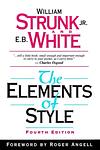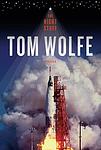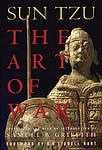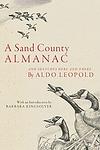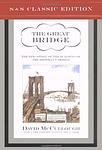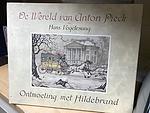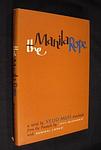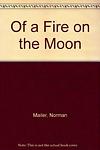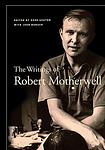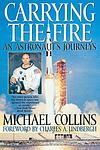The Greatest "Engineering" Books of All Time
Click to learn how this list is calculated.
This list represents a comprehensive and trusted collection of the greatest books. Developed through a specialized algorithm, it brings together 286 'best of' book lists to form a definitive guide to the world's most acclaimed books. For those interested in how these books are chosen, additional details can be found on the rankings page.
Genres
The category of "Engineering" in books encompasses a wide range of topics related to the design, development, and application of various technologies and systems. This includes fields such as mechanical, electrical, civil, chemical, and aerospace engineering, as well as sub-disciplines like robotics, materials science, and environmental engineering. Books in this category may cover theoretical concepts, practical applications, case studies, and emerging trends in the field. They are aimed at students, professionals, and enthusiasts who seek to deepen their knowledge and skills in engineering.
Countries
Date Range
Reading Statistics
Click the button below to see how many of these books you've read!
Download
If you're interested in downloading this list as a CSV file for use in a spreadsheet application, you can easily do so by clicking the button below. Please note that to ensure a manageable file size and faster download, the CSV will include details for only the first 500 books.
Download-
1. Silent Spring by Rachel Carson
This influential environmental science book presents a detailed and passionate argument against the overuse of pesticides in the mid-20th century. The author meticulously describes the harmful effects of these chemicals on the environment, particularly on birds, hence the metaphor of a 'silent spring' without bird song. The book played a significant role in advancing the global environmental movement and led to a nationwide ban on DDT and other pesticides in the United States.
-
2. The Elements of Style by E. B. White, William Strunk Jr.
This book is a definitive guide and classic manual on the principles of English language read by millions of readers. The 18 main topics are organized under headings such as Elementary Rules of Usage, Elementary Principles of Composition, A Few Matters of Form, Words and Expressions Commonly Misused, and An Approach to Style. The book's unique tone, wit and charm have conveyed the principles of English style to millions of readers, making it a beloved resource for those who want to write clear, correct and effective prose.
-
3. The Right Stuff by Tom Wolfe
"The Right Stuff" is a non-fiction novel that explores the lives and experiences of the first Project Mercury astronauts selected for the NASA space program in the 1960s. The book delves into the personal and professional lives of these astronauts, highlighting their courage, competitiveness, and the immense pressure they faced. It also provides a detailed account of the space race between the United States and the Soviet Union during the Cold War era.
-
4. The Art of War by Sun Zi
This ancient Chinese military treatise, written by a renowned general and military strategist, is a comprehensive guide on military strategy and tactics. It covers various aspects of warfare, from planning and preparation to execution and aftermath. The work emphasizes the importance of understanding one's enemy, using deception, and adapting to changing circumstances. It also stresses the importance of terrain, morale, and leadership. Despite its military focus, its principles have been applied to business, politics, and other fields, making it a timeless classic on strategy.
-
5. The Great Railway Bazaar by Paul Theroux
"The Great Railway Bazaar" is a travelogue in which the author embarks on a four-month journey by train from London through Europe, the Middle East, the Indian subcontinent, Southeast Asia, and Siberia, and then back to Europe. The book is a vivid and insightful account of the people, cultures, landscapes, and experiences encountered during the journey, painting a unique picture of the world as seen from the perspective of a train window. The author's sharp observations and engaging storytelling make this journey as much an inner exploration as a geographical one.
-
6. Guns, Germs, and Steel by Jared Diamond
The book is a comprehensive exploration of the different trajectories of human societies throughout history. It argues that environmental factors, rather than racial or cultural differences, are the primary reason why some societies developed more advanced technology and political systems. The author uses a multidisciplinary approach, drawing from fields such as geography, evolutionary biology, and linguistics, to support his thesis. The book covers a wide range of topics, including the domestication of plants and animals, the invention of writing, and the spread of diseases.
-
7. The Face of Battle by John Keegan
"The Face of Battle" is a military history book that examines warfare from the perspective of the common soldier. It explores three significant battles in detail - the Battle of Agincourt in 1415, the Battle of Waterloo in 1815, and the Battle of the Somme in 1916. By focusing on the experiences of the individual soldiers, the book provides readers with a unique insight into the reality of war, the strategies employed, the conditions faced by soldiers, the impact of technological advancements on warfare, and the human cost of these historic battles.
-
8. A Sand County Almanac by Aldo Leopold
This book is a compilation of nature-related essays that highlight the author's experiences and observations as a conservationist. The author provides a thoughtful and eloquent reflection on the relationship between land and people, emphasizing the importance of conservation and sustainability. Through his writings, he advocates for a 'land ethic' where humans view themselves as part of the natural community rather than conquerors of it, promoting a harmonious coexistence with nature.
-
9. Extinction by Thomas Bernhard
"Extinction" is a novel that explores the dark and complex themes of family, identity, and history through the eyes of its protagonist, a professor living in Rome. When he receives news of the deaths of his parents and brother in a car accident, he is forced to confront his past and his Austrian heritage. The narrative delves into his thoughts and feelings, his criticisms of his family and society, and his philosophical musings on life and death, all while he prepares to return to his family's estate for the funeral. The novel is renowned for its dense, stream-of-consciousness style and its unflinching examination of the human condition.
-
10. The Devil In The White City by Erik Larson
This book intertwines the true tales of two men during the 1893 Chicago World's Fair: Daniel H. Burnham, the architect responsible for the fair's construction, and H.H. Holmes, a serial killer masquerading as a charming doctor. The narrative alternates between the story of Burnham, his challenges and successes in building the fair, and the chilling story of Holmes, who used the fair to lure his victims to their death. It's a vivid portrayal of the Gilded Age and a chilling exploration of one of America's first known serial killers.
-
11. The Perfect Storm by Sebastian Junger
This non-fiction book narrates the story of the Andrea Gail, a commercial fishing vessel that was lost at sea during the "Perfect Storm" of 1991. The author combines meteorological science, history, and personal accounts to paint a vivid picture of the harrowing ordeal faced by these six fishermen. The book also explores the dangerous profession of deep-sea fishing and the tight-knit communities that are affected by such tragedies.
-
12. Great Bridge by David McCullough
This book is a detailed account of the construction of the Brooklyn Bridge, one of the most significant and iconic landmarks in New York City. It provides an in-depth look at the political, architectural, and personal challenges faced during its 14-year construction period in the late 19th century. The narrative also explores the lives of the Roebling family, who were the chief engineers and designers of the bridge, along with the societal changes and technological advancements of the era.
-
13. In the Heart of the Sea by Nathaniel Philbrick
This historical narrative tells the true story of the 19th-century whaleship Essex, which was rammed and sunk by a sperm whale in the South Pacific. Stranded thousands of miles from land, the crew of the Essex was pushed to their limits and forced to do the unthinkable to stay alive. The tale explores the harrowing ordeal of these men through their long journey at sea, their encounters with nature's fury, hunger, disease, and their own fear and despair.
-
14. Camera Obscura by Nicolaas Beets
"Camera Obscura" is a collection of humorous and satirical sketches that provide a vivid picture of 19th-century Dutch society. It explores the social and domestic life of the middle classes, their habits, their social pretensions, their pleasures and their follies. The book also includes a series of character studies, often based on the author's acquaintances, which are presented in a light-hearted and often ironic tone.
-
15. The Manila Rope by Veijo Meri
"The Manila Rope" is a novel that explores the experiences of a group of Finnish soldiers during World War II. The narrative follows the soldiers as they are tasked with transporting a massive, cumbersome coil of rope across challenging terrains, a task that becomes increasingly absurd and futile as the story progresses. The book uses this premise to delve into the harsh realities and absurdities of war, highlighting the human capacity for resilience and camaraderie in the face of adversity.
-
16. A Fire on the Moon by Norman Mailer
"A Fire on the Moon" is a detailed account of the Apollo 11 mission, which resulted in the first man landing on the moon. The book offers an in-depth exploration of the technical aspects of the mission, the astronauts involved, and the political and cultural implications of the historic event. It also delves into the author's personal reflections and philosophical musings on space exploration, technology, and the human condition.
-
17. The Swarm by Frank Schatzing
"The Swarm" is a science fiction novel that explores the disastrous consequences of mankind's exploitation of the world's oceans. The narrative follows a group of scientists around the world as they try to understand a series of inexplicable, catastrophic natural disasters. They eventually discover that these events are not random but are the result of a collective intelligence in the sea, a swarm of marine life that has decided to fight back against humanity's destruction of their habitat. The book combines elements of ecological thriller, disaster novel, and speculative fiction as it explores the potential consequences of human interference with the natural world.
-
18. A Bright Shining Lie by Neil Sheehan
"A Bright Shining Lie" is a detailed account of the Vietnam War through the eyes of a charismatic and controversial American military advisor. The book provides an in-depth examination of the war, delving into the complex political and military strategies, the culture of corruption and deceit, and the impact on both Vietnamese civilians and American soldiers. The narrative also explores the protagonist's personal life, including his troubled marriage and his eventual disillusionment with the war. The book is not just a biography, but a critical analysis of the American involvement in Vietnam.
-
19. Science and Civilisation in China by Joseph Needham
"Science and Civilisation in China" is a comprehensive and authoritative series that explores the history of Chinese science, technology, and medicine. The series delves into the significant contributions China has made in various scientific fields, including astronomy, mathematics, physics, chemistry, biology, and medical science, among others. The author also examines the cultural, philosophical, and social contexts in which these scientific advancements took place, providing a holistic view of China's scientific history and its impact on the world.
-
20. On War by Carl Von Clausewitz
This book is a comprehensive analysis of warfare, written by a Prussian military theorist. It discusses the philosophical aspects of war, such as its political nature and purpose, as well as its practical aspects, such as strategy and tactics. The author argues that war is an extension of politics by other means and that its ultimate objective is to compel the enemy to fulfill our will. He also introduces the concept of "friction" in war, which refers to the unpredictable factors that can affect the outcome of military operations.
-
21. Cadillac Desert by Marc Reisner
"Cadillac Desert" is a detailed exploration of the water crisis in the American West. The book delves into the history, politics, and environmental impact of water development in this region, highlighting the role of government policies and engineering projects. It also discusses the unsustainable use of water resources, the impact on local ecosystems, and the potential consequences of continued mismanagement, providing a comprehensive overview of a critical environmental issue.
-
22. Documents of Modern Art by Robert Motherwell
"Documents of Modern Art" is a comprehensive collection of writings that provides an intellectual and historical context to the development of modern art. The book features a wide range of essays, manifestos, letters, and other writings by influential artists, critics, and scholars from the late 19th century to the mid-20th century. The collection effectively traces the evolution of modern art, exploring its various movements, including Impressionism, Cubism, Surrealism, and Abstract Expressionism, and offers readers a deeper understanding of the philosophical and theoretical underpinnings of the art world during this period.
-
23. Carrying the Fire by Michael Collins
"Carrying the Fire" is an autobiographical account of an astronaut's journey to the moon and back. It provides an inside look into the life of an astronaut, the rigorous training they undergo, the thrill and dangers of space travel, and the awe-inspiring experience of seeing Earth from space. The book also delves into the technical aspects of space missions, making it an informative read for those interested in space exploration.
-
24. The Prize: The Epic Quest for Oil, Money, and Power by Daniel Yergin
"The Prize: The Epic Quest for Oil, Money, and Power" is a comprehensive history of the global oil industry, tracing its development from the drilling of the first well in Pennsylvania to the oil crisis of the 1970s and its aftermath. The book examines the key players, political conflicts, and technological advancements that have shaped the industry, and explores the profound impact of oil on the global economy and geopolitics. It also discusses the environmental and social challenges associated with oil production and consumption.
-
25. The Influence of Sea Power Upon History, 1660-1783 by Alfred Thayer Mahan
This book is a comprehensive examination of the importance of naval warfare in the period between 1660 and 1783. The author argues that sea power was a crucial factor in determining the outcomes of historical events during this period, including the rise and fall of empires and the outcomes of wars. The book provides detailed analyses of major naval battles, strategies, and technologies, as well as the economic and political factors that influenced the development of naval power. It is considered a seminal work in the field of naval history and strategy.
Reading Statistics
Click the button below to see how many of these books you've read!
Download
If you're interested in downloading this list as a CSV file for use in a spreadsheet application, you can easily do so by clicking the button below. Please note that to ensure a manageable file size and faster download, the CSV will include details for only the first 500 books.
Download
